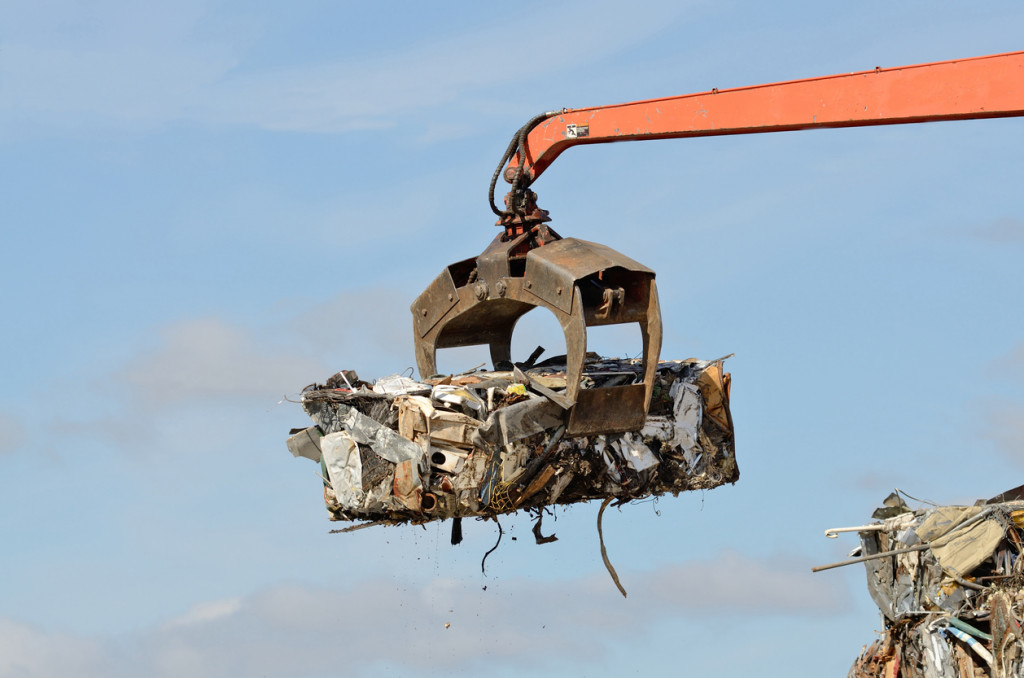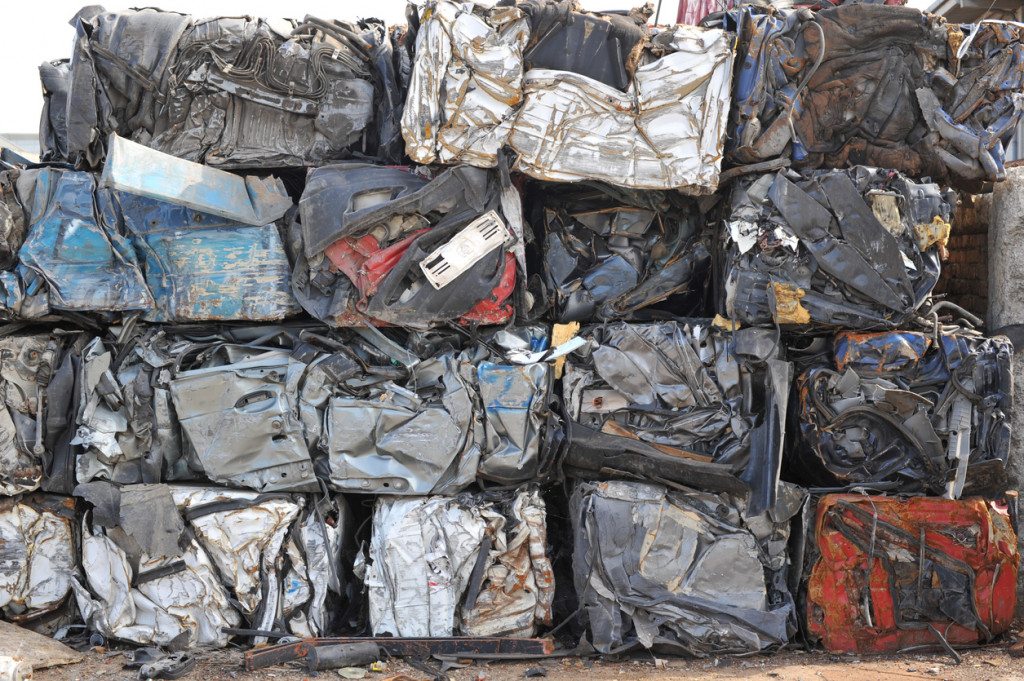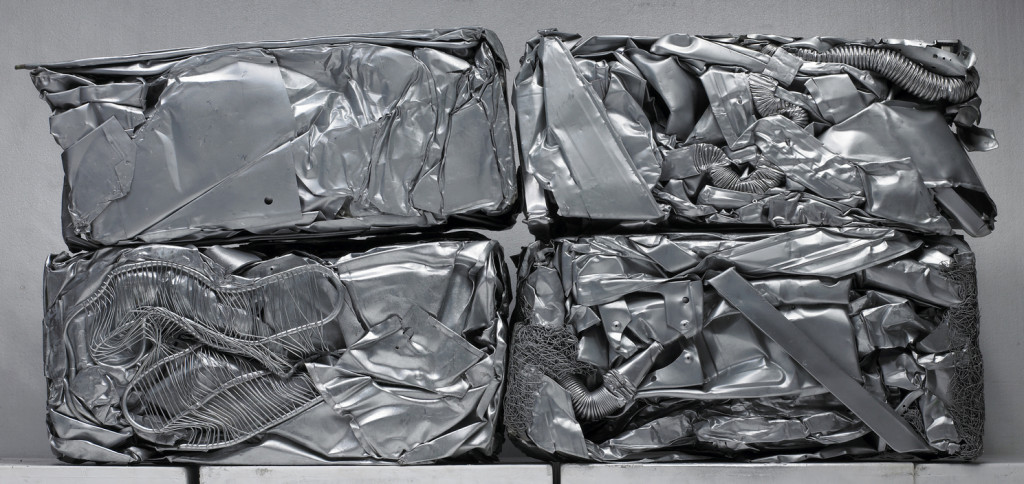Here at Morecambe Metals, we use a variety of industrial machinery to process scrap metal in preparation for recycling. We have designed our processes to be as efficient as possible, and metals balers help us achieve this. As part of our ongoing series exploring the machinery and tools that keep Morecambe Metals running, today we’re going to talk about metal balers, what they are, how they work and why they’re crucial to scrap metal recycling processes.

What Are Metal Balers?
Metal balers are machines that crush, cut and compress scrap metal into manageable bales that are easier to transport than loose scrap. Balers were first developed for agricultural applications to eliminate manual raking and bundling of haystacks. However, the concept of baling has since been applied to many materials and applications, predominantly to speed up processes, reduce the volume of bulky materials and save on storage and transportation costs. There are many types of baler available, and they can be used to bale a wide range of recyclable materials, including paper, plastics and foam, and of course, scrap metal.
Industrial balers are used to improve scrap metal handling, compressing metal into a dense, manageable bale that is easily stackable for better storage. Scrap metal balers are often far more rugged than their plastic or paper counterparts since they need to compress and process tough metal effectively. In addition, many scrap metal baler models are capable of not only baling the metal but also cutting and crushing.
Types of Baler
There are many different types of baler, and the kind of material you need to bale will dictate the style of machine required. For example, for ferrous metal processing, a ferrous baler is required. These balers can handle heavy materials and are some of the toughest balers around.
Ferrous metal balers use either two or three compression rams. In a two-compression model, one side (or wing door) squeezes the metal to crush it along with the main ram. In a three-compression model, both sides (or wing doors) squeeze the metal along with the main ram – or one side, a top lid and the main ram. All the rams are hydraulically operated, and material is fed into the baler either using a magnet or crane.
Metal balers can be portable or stationary. Stationary balers are suitable for applications in which the metal that needs baling is already at the site of the baler. However, since the point of metal balers is to compress and make the scrap metal easier to transport, it is often more beneficial to bring the baler to the site where metal is, rather than vice versa.
Non-ferrous metal processing can also take advantage of metal balers. A fantastic example of a non-ferrous metal that benefits immensely from baling is aluminium, a lightweight metal that can take up a lot of space before being compressed.

Integral Parts that Make Balers Work
Balers vary in their complexity, but they all have integral features that allow them to process heavy material like scrap metal effectively.
Hydraulic Cylinders
The hydraulic cylinders on a baler exert the required force to compress the metal. Fluid is pressurised by positive displacement pumps to achieve the correct compression. In scrap metal bailing, the cylinders need to be tough, durable, and able to withstand shocks and side loading.
The Ram
The baler’s ram is attached to the hydraulic cylinder arm. It is the part of the machine that presses against the scrap metal to compress it.
Bale Chamber
The main cavity of the baling machine is called the bale chamber. It encloses and shapes the bale and is usually made of thick steel capable of withstanding pressure from the compression process.
Pressing Lid
Pressing lids are most common in ferrous metal balers, acting as a pre-compression ram upon closing to form the scrap metal into an initial bale shape.
Crane
Most commonly seen on portable balers, the crane is integrated into the baler set up to allow for easy loading of metal into the machine.

The Advantages of Metal Balers
Metal balers are used widely across scrap metal recycling, helping to cut haulage costs and maximise the payload on every scrap metal collection, particularly on less dense scrap that takes up a lot of space before compression.
Scrap metal baling as a service is also a popular and economical option for companies who require metal baling but don’t have an on-site baler or only need to hire a baler temporarily. If your business has large scrap metal quantities that need baling before transportation, you can hire a mobile baler from Morecambe Metals. Our baler is capable of loading, crushing, baling and cutting scrap metal for fast and efficient compaction to cut unnecessary haulage costs.
At Morecambe Metals, we strive to make scrap metal recycling as effective and efficient as possible. Our balers play an essential role in this and have helped many of our commercial and industrial customers to reduce scrap metal storage and transportation costs. If you would like any information about hiring our mobile baler or our work within scrap metal recycling, please contact us today.

